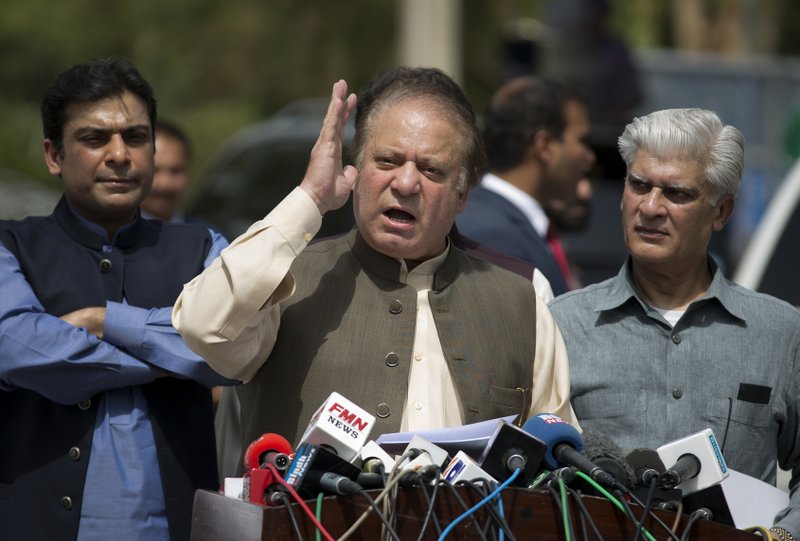
Pakistan’s top court on Friday concluded its hearing into corruption allegations against Prime Minister Nawaz Sharif’s family, but it wasn’t immediately clear when the tribunal would announce its decision, defense lawyers and attorneys for the petitioners said.
Under Pakistani law, the Supreme Court has the authority to dismiss the prime minister. Sharif has maintained his innocence throughout the scandal and has appeared before the court in recent weeks, along with his daughter and two sons.
The court heard arguments from both the government side and the opposition after a court-ordered investigation found there was a “significant disparity” between the declared wealth and known sources of income of Sharif’s family.
Now a three-judge panel headed by justice Ejaz Afzal Khan will weigh whether the evidence is adequate to dismiss Sharif from office, according to Khursheed Ahmed, a legal expert.
“The Supreme Court today concluded the hearing of this case and it will set a date for announcing the judgment later,” said Salman Akram Raja, Sharif family lawer.
Fawad Chaudhry, a lawyer representing the opposition party led by cricketer-turned-politician Imran Khan, said their side hopes Sharif will be disqualified.
Opposition lawmakers have been fighting a legal battle to disqualify the prime minister since leaked documents from a Panama-based law firm in 2016 disclosed his family’s offshore accounts.
The Supreme Court, acting on petitions from opposition lawmakers, established a six-member team to investigate the corruption allegations involving Sharif’s family, including his daughter and two sons.
Earlier in July, the team submitted a voluminous report to the court to support its conclusion that a “significant disparity” existed between the Sharif family’s declared wealth and its known sources of income.
The report suggested the court take action against Sharif and his family in accordance with a 1999 accountability law intended to help stamp out corruption. Sharif has sought to discredit the investigators, accusing them of bias.
After Friday’s court hearing, Information Minister Maryam Aurangzeb said the government had “serious reservations” about the court’s investigating team, adding that it failed to prove corruption allegations.
She said Sharif met with his advisers later Friday and that they “hope and expect that the court will do justice,” she said. Aurangzeb insisted the opposition has conspired against Sharif since 2013, when he came into power.
Meanwhile, opposition leader Khursheed Shah, from the party of ex-President Asif Ali Zardari, said Sharif still has the time to resign rather than be disqualified by the court.
If Sharif is disqualified, his Pakistan Muslim League, which holds a majority of seats in Parliament, can choose another prime minister.
Sharif, who served as prime minister two times before his current term, has said he inherited his wealth from his father, who accumulated his fortune prior to the son’s entry into politics in the 1980s. Sharif also says he established a steel mill abroad when he was sent into exile in Saudi Arabia by former military ruler Pervez Musharraf, who seized power from Sharif in a 1999 coup.



